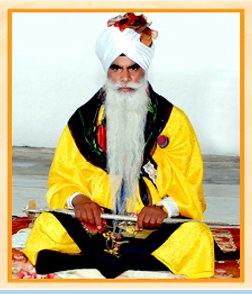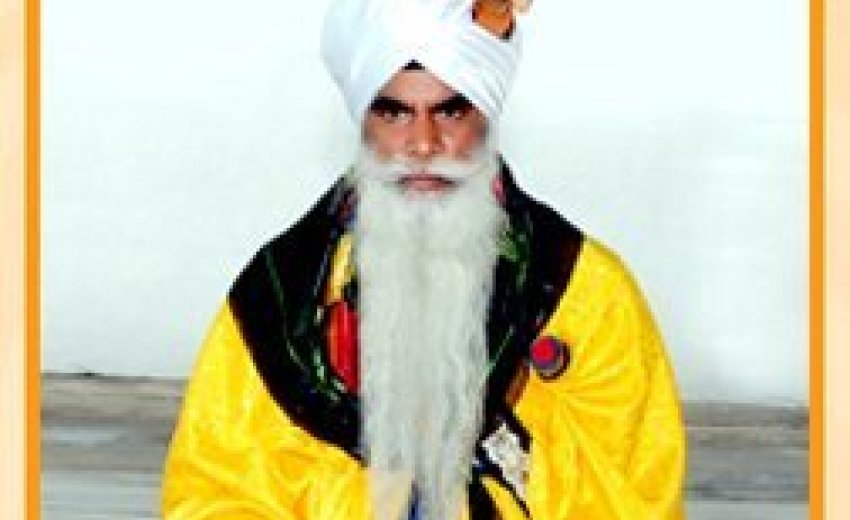
Jan 31, 2011: In the commotion surrounding the Christian hotel gay discrimination case, it is easy to forget that there is a long-standing principle that English courts will not decide matters of religious doctrine. This principle has been in play in a run of recent cases involving an Indian holy man and libel claims against journalists.
The most recent case was brought by Dajid Singh Shergill, a UK-based Sikh activist suing the Panjab Times in relation to 3 articles published in the summer 2008, relating to His Holiness Sant Baba Jeet Singh Ji Maharaj (Jeet Singh), an Indian based preacher. The articles claimed, amongst other things, that Jeet Singh had “abandoned Sikh Principles“, that he and his supporters were a “sham“, that Shergill had “sought to instigate serious riots and create an atmosphere of terror” by proclaiming that Baba Jeet Singh had won a court case in India and was seeking to misappropriate local Sikh temples.
The defendants asked the court to stay the action on the basis that the claims related to points of religious principle, and as such could not properly be decided in a court. It is a defence to a libel action if the claims complained of can be shown to be true (the justification defence). However, courts have been reluctant to rule on such issues if they are essentially points of religious doctrine rather than simple factual matters.
The principle was examined in a related recent case where Mr Justice Eady in the high court stayed a claim brought against Hardeep Singh, a journalist (not to be confused with Hardeep Singh Kohli), by Jeet Singh himself, relating to an article Singh wrote in the UK-based Sikh Times in which he called Jeet Singh an “accused cult leader” and an “impostor“.
In that case, the judge relied on the principle explained by Mr Justice Munby in Sulaiman v Juffali [2002] 1 FLR 479, that
Religion … is not the business of government or of the secular courts. So the starting point of the law is an essentially agnostic view of religious beliefs and a tolerant indulgence to religious and cultural diversity. A secular judge must be wary of straying across the well-recognised divide between church and state. It is not for a judge to weigh one religion against another. All are entitled to equal respect, whether in times of peace or, as at present, amidst the clash of arms.
Since the central issues to the case could not “be divorced from questions of Sikh doctrine and practice“, the judge effectively threw it out by staying it indefinitely. The case is currently before the court of appeal, but only on very limited grounds, and not in relation to whether the allegations were about religious doctrine.
Sir Charles Gray made a similar ruling in Shergill’s case. The facts could not be separated from the questions of religious doctrine:
it is open to a defendant in a libel action to justify words of which the claimant complains in any meaning which those words are reasonably capable of bearing. In my judgment, it would not be possible to hive off or divorce the issue of the legitimacy or otherwise of the claims that Baba Jeet is the successor to the sainthood. To attempt to do so would be unjust to the defendants. It appears to me to be fundamental to their case on justification that the claims of Baba Jeet to be the true leader and owner of the Gurduwaras are unjustified. (para 34)
The claim was therefore stayed, which means that it has effectively been struck out, unless the claimant successfully appeals.
No religion please, sometimes
Two issues arise from this judgment. First, in the particular case, did Sir Charles Gray go too far in staying the entire claim? As the Inforrm blog points out, not all of the articles complained of were straightforwardly about religious doctrine:
although the background was religious, there were also allegations that the claimant was a party to “conspiracies to provoke violence”. It is arguable that the decision goes too far, and breaches the claimant’s right to access to court under Article 6 of the European Convention on Human Rights.
The second question arising is whether the courts are doing enough, or indeed too much, to exclude matters of religious doctrine. It seems right that courts, which are secular, should never make a ruling which privileges one religion over another. But the devil is in the detail. It is not always possible to say conclusively whether an issue is one of religious doctrine or not.
And whilst courts may seek not to mediate between religions, judges are regularly ruling that secular principles – for example non-discrimination – should trump some religious beliefs. A recent example is the Cornish hotel gay discrimination case, where the hotel’s Christian owners sought unsuccessfully to prevent two gay men from sharing a room. In another, a Christian charity was prevented from restricting its adoption service to heterosexuals. And in the important Jewish Free School case, the Supreme Court privileged anti-discrimination rules over Jewish religious doctrine.
So whilst the courts may seek to avoid ruling on religious doctrine, they are in fact regularly confronted with issues which are unavoidably linked to religious principle, usually when they come into conflict with human rights or discrimination law. This is fair enough if one accepts the principle of a secular state which allows religious institutions to do what they like so long as they do not unreasonably impinge on the rights of others. But this begs the question as to what is “unreasonable”.
Some have said that in light of an increasing number of cases involving religion, the courts could make themselves more sensitive to religious issues, perhaps through “faith courts” where judges would be specially trained. But this idea would do more harm than good, as I have argued recently.
Whilst the question of religion in courts is difficult, it by no means new. It has often been central to the difficult balance maintained by liberal secular democracies over history. It will continue to be controversial, and the courts must be sensitive whilst also maintaining the standards of discrimination and human rights law, which, it should be remembered, also protects freedom of religious expression. It will not always be easy to say whether a point of religious doctrine is central to a case. But it a worthwhile aim to try to steer clear when possible.
Shergill v Purewal & Anor [2010] EWHC 3610 (QB) (15 December 2010) - Read judgment
Sant Baba Jit Singh ji Maharaj - bio.
Sant Baba Jit Singh ji was born in village Kishankot (near Sri Hargobindpur) Tehsil Batala, District Gurdaspur. His parents were fortunate to be blessed with such a spiritual soul. He studied in the school and cleared his matriculation examination.
In the year 1975, Sant Baba Gian Singh ji Maharaj the chief of Nirmal Kutiya Johalan took him under his fold. Sant Baba Jit Singh ji served his Gurudev Sant Baba Gian Singh ji and Sant Baba Harbhajan Singh ji Virakat with love and full faith. He remained close to Sant Baba Gian Singh ji from 1984 to 2001. He performed SEWA of Sant Baba Gian Singh ji Maharaj with extreme humbleness. His SEWA included bathing Sant Baba ji, serving food, giving timely medicines and washing his personal clothes.
After the light of Sant Baba Gian Singh ji merged with the eternal, the complete attention of Sant Baba Jit Singh ji was directed towards serving Sant Baba Harabhajan Singh ji Virakat with all humility.
Braham Giani Sant Baba Harbhajan Singh Virakat ji soul merged with the Eternal on 8th March 2002. Sant Baba Jit Singh ji was appointed the Chief of the Kutiya.
Sant Baba Jit Singh ji is ably looking after the administration of the Kutiya within the confines of the Code of Conduct initiated by his Gurdevs, Sant Baba Basant Singh ji Maharaj and continued by Sant Baba Gian Singh ji and Sant Baba Harbhajan Singh Virakat ji. The sangat finds the same peace and purity prevailing in the Kutiya, which was so dear to the earlier Mahapurakhs. He and his assistant are fully involved in all those works wherefrom they feel that the plant of Gursikhi would blossom. He inspires the public through his discourses to follow the true Sikh path. He tackles those gone astray individually. He concentrates towards increasing the number of Amritdhari Sikhs, both men as well as women.
His endeavor is to let the people find pearls and jewels from the Holy Book of Dhan Dhan Sri Guru Granth Sahib ji by following the disciplined path prescribed by the Ten Gurus.
